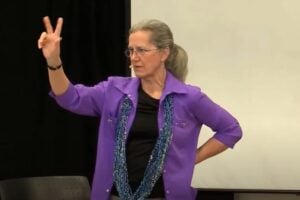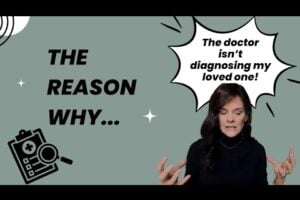What happens to our cognitive abilities as we age? Traditionally it is thought that age leads to a steady deterioration of brain function, but important research in Topics in Cognitive Science argues that older brains may take longer to process ever increasing amounts of knowledge, and this has often been misidentified as declining capacity.
Increased Knowledge
The study, led by Dr. Michael Ramscar of the University of Tuebingen, takes a critical look at the measures that are usually thought to show that our cognitive abilities decline across adulthood. Instead of finding evidence of decline, the team discovered that most standard cognitive measures are flawed, confusing increased knowledge for declining capacity.
More Data Takes More Time
Dr. Ramscar’s team used computers, programmed to act as though they were humans, to read a certain amount each day, learning new things along the way. When the researchers let a computer ‘read’ a limited amount, its performance on cognitive tests resembled that of a young adult. However, if the same computer was exposed data which represented a lifetime of experiences, its performance looked like that of an older adult. Often it was slower, not because its processing capacity had declined, but because increased “experience” had caused the computer’s database to grow, giving it more data to process, and that processing takes time.
“What does this finding mean for our understanding of our ageing minds, for example older adults’ increased difficulties with word recall? These are traditionally thought to reveal how our memory for words deteriorates with age, but Big Data adds a twist to this idea,” said Dr. Ramscar. “Technology now allows researchers to make quantitative estimates about the number of words an adult can be expected to learn across a lifetime, enabling the team to separate the challenge that increasing knowledge poses to memory from the actual performance of memory itself.”
Rethinking the Aging Mind
“Imagine someone who knows two people’s birthdays and can recall them almost perfectly. Would you really want to say that person has a better memory than a person who knows the birthdays of 2000 people, but can ‘only’ match the right person to the right birthday nine times out of ten?” asks Ramscar.
“It is time we rethink what we mean by the aging mind before our false assumptions result in decisions and policies that marginalize the old or waste precious public resources to remediate problems that do not exist,” said Ramscar.












I am 85 in the UK. When I am asked a question I can say "I know that", but it can take an hour or two to get to the top of the pile, depending how long ago it was it can be tomorrow before I can answer.
I knew this before reading this article.
Roger King Cheshire
Thank you, my significant other is more and more non-communicative even with others and he is now starting to not remember basic words for objects. When talking to people he can't make complete sentences, this helps know why.
Slowing of response is one of the perils of age. I now (86) must be very careful driving, eg when I approach a corner, I look right, no traffic, look left, no traffic, but by the time I have processed both ways I am still not sure. Phil.
My dad lost his ability to communicate when he had Alzheimer.Why is this happening?
Because the part of the brain that processes sound to understand speech and produce responses is badly affected by loss of connections to the parts of the brain. The brain in this area shrinks, and this often starts happening early in the disease process.
Amen.
I read a book on this subject at least twenty years ago. The author, I don't remember who she is, presented her basic idea this way. Ask a sixteen year old a question on an important matter and you have an immediate answer. Not much learning or experience to sort through. Ask the same question of a seventy-six year old and it takes longer to get an answer. The seventy-six year old has an additional sixty years of learning and experience to sort through before offering an answer.
I have often heard the age of sixteen referred to as the age of omniscience. By the time you are seventy-six, you have learned that there is no such age. He has also learned to think before he speaks.
My mind is like a slow computer. It sometimes takes a while, but I still get the answer.
I am 69 years old and just had a conversation along this line with my 34 year old daughter. Thanks for sharing this research!